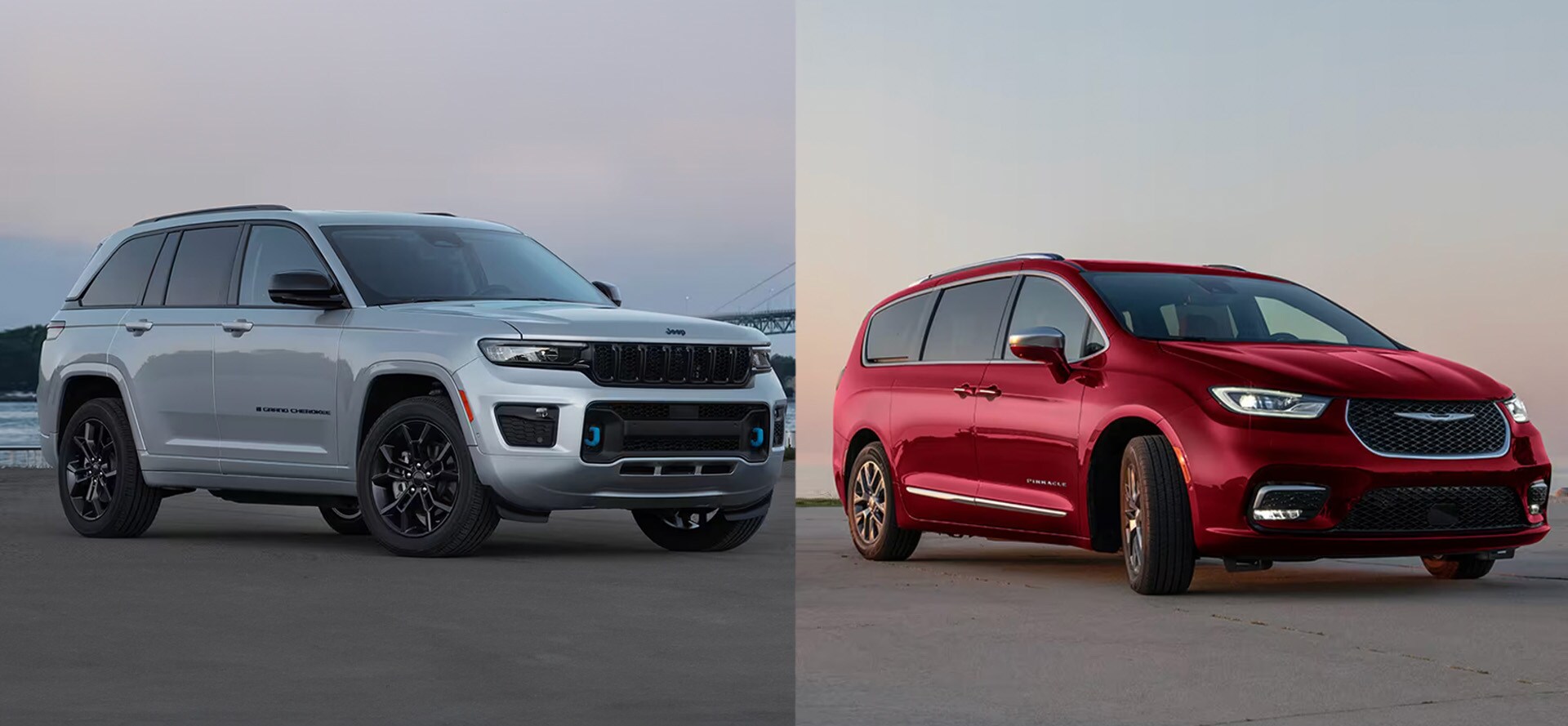
Why Hybrid Vehicles Are The Perfect Modern Choice
The Advantage of A Hybrid Car: Is It Worth the Investment?
Wondering about the benefits of hybrid car ownership? This article breaks down how hybrids save you money, reduce your carbon footprint, and offer practical advantages over traditional gas vehicles. But don't just take our word for it-come experience the benefits firsthand at Beaver County Dodge Chrysler Jeep Ram! Our team is ready to help you find the perfect hybrid car that fits your lifestyle and budget. By choosing a hybrid from Beaver County DCJR, you're making a smart financial decision and contributing to a greener planet. Visit us today and take a test drive to see how a hybrid can transform your driving experience and reap the benefits of a hybrid car!
Key Takeaways
- Hybrids offer a balanced option between fuel efficiency and driving range, making them ideal for those concerned about charging infrastructure.
- Despite a higher upfront cost, hybrids save money long-term through fuel savings, lower maintenance, and government incentives.
- Hybrids generate fewer emissions and maintain a solid resale value, making them environmentally friendly and financially smart options.

Hybrid vs. EV: Which Is Better For You?
Choosing between a hybrid and an electric vehicle can be tricky. Hybrids combine a gasoline engine and an electric motor, balancing fuel efficiency and range. On the other hand, EVs are fully electric, providing zero tailpipe emissions but often at a higher initial cost. The key difference lies in how they manage energy and fuel usage. While EVs are greener, producing no tailpipe emissions, hybrids still significantly improve over traditional gasoline cars. Evaluate your driving needs and local infrastructure to determine the best choice. EVs generally have a shorter range per charge compared to the distance a hybrid can cover with a full tank of gasoline. Additionally, the higher purchase price of EVs might be a concern. However, EVs do boast lower maintenance costs than hybrids. It's essential to weigh these factors against your budget, habits, and preferences. If you're looking for a more affordable option with less range anxiety, hybrids might be the way to go. They can switch between electric and gasoline power, ensuring you're never left stranded. Conversely, if your priority is reducing your impact and you have access to a reliable network, an EV could be the greener choice. For more insights on hybrid and electric vehicles, be sure to explore additional information here!
Hybrid vs. Gas Cars
Comparing hybrid cars to traditional gas-powered cars reveals distinct advantages and disadvantages. Hybrids combine gasoline and electric motors, offering improved fuel efficiency and reduced emissions. Gas cars, relying solely on gasoline, provide higher speeds and a broader range of options but have higher maintenance costs and fluctuating fuel prices. One of the significant advantages of hybrid cars is their environmental friendliness. They produce fewer greenhouse gasses and have a longer lifespan. However, they can be more expensive to maintain and may not reach the higher speeds of gas cars. On the other hand, gas cars are generally cheaper upfront and offer more options, but their higher maintenance costs and fluctuating gas prices can be a drawback. When choosing between a hybrid and a gas car, consider your budget, driving habits, and environmental preferences. A hybrid could be a worthwhile investment if saving on fuel and reducing environmental impact are priorities. If upfront costs and higher speeds are more critical to you, a gas car might be the better choice. Want to compare hybrids and gas cars even further? Click here to read more!

How Hybrid Cars Help Save You Money
Hybrid cars can be more expensive upfront but save money in the long run through various cost-saving measures and incentives. Different types of incentives are available for hybrid car purchases, which can make them more affordable. Additionally, hybrids generally offer better fuel efficiency and can have lower maintenance costs compared to some traditional vehicles. Hybrids combine an electric motor and a gasoline engine to achieve better fuel economy, leading to potential long-term savings. Some well-known hybrid models are recognized for their fuel efficiency, which can result in savings on fuel costs. Moreover, hybrid vehicles help reduce emissions, contributing to a cleaner environment. Owners of new hybrid cars might be eligible for certain tax credits. These incentives, along with reduced fuel expenses and maintenance costs, make hybrids a financially sound investment. Despite their higher initial price, the long-term savings and environmental benefits make hybrids a worthwhile consideration. For more information about how opting for a hybrid can help save you money, click here!
How Long Do Hybrid Cars Last?
Hybrid cars are designed to last longer than traditional gas cars due to the combination of gasoline and electric motors, which reduces wear and tear. The lifespan of a hybrid battery is typically estimated at 80,000 to 100,000 miles, but it can vary based on personal driving habits and its maintenance schedule. With good maintenance and care, hybrid batteries can even surpass 200,000 miles in longevity. Factors affecting battery life include driving conditions, climate, charging habits, and maintenance. Regular maintenance, such as battery inspections and software updates, is vital to ensure optimal battery performance. Implementing preventive maintenance and adopting efficient driving habits can significantly extend the lifespan of hybrid vehicles. Signs of a failing hybrid battery include reduced fuel economy, sluggish acceleration, and difficulty starting. To extend battery life, follow recommended maintenance, avoid extreme temperatures, and minimize idling. With proper care, hybrid cars can offer exceptional fuel economy, powerful performance, and reduced environmental impact for many years. Learn more about the longevity of hybrid vehicles here!
How Hybrid Cars Hold Their Value
Hybrid cars are known for holding their value well compared to conventional vehicles. Several factors contribute to this, including fuel efficiency, technological reliability, environmental considerations, brand and model reputation, market dynamics, and battery condition. The excellent fuel economy of hybrid cars significantly contributes to their ability to maintain value over time. Hybrids exhibit substantial resale value with better depreciation rates than traditional vehicles. To explore more information about a hybrid car's value, click here!

Hybrid Maintenance Cost Savings
One of the significant advantages of hybrid cars is their decreased maintenance costs compared to traditional gasoline vehicles. Despite common myths, hybrid maintenance is inexpensive, and the batteries do not need frequent replacement. Hybrids are known for their reliability and durability. Factors affecting maintenance costs include the type of hybrid, age and mileage, driving conditions, maintenance schedule, and battery health. Hybrids can save money through reduced maintenance costs, fuel savings, and potential tax credits. The design of hybrid vehicles helps decrease maintenance expenses by minimizing the strain on the engine and brakes, leading to fewer routine maintenance costs.
Enhanced Fuel Efficiency
Hybrid vehicles are designed to enhance fuel economy by utilizing a combination of an electric motor and a gasoline engine. Full hybrid cars can operate on electric power alone for short distances, offering improved fuel economy compared to traditional vehicles. The regenerative braking system in hybrid vehicles captures energy during braking, contributing to better fuel efficiency. The combination of reduced fuel consumption and efficient technology makes hybrid cars a smart choice for those looking to save on fuel costs.
Lower Emissions
Hybrid vehicles generally produce fewer greenhouse gas emissions than conventional cars, making them a better option for reducing air pollution. Over time, hybrid vehicles emit less CO2 than traditional petrol or diesel cars. This reduction in emissions contributes to a cleaner environment and better air quality.
Plug-in hybrid cars have no direct tailpipe emissions when running on electricity, enhancing their environmental benefits when charged from renewable energy sources. By reducing carbon emissions, hybrid vehicles make a more environmentally friendly choice.
Reduced Fuel Costs
Hybrid vehicles reduce the frequency of gas station visits and utilize efficient engines. Due to their electric-drive features, they generally consume less fuel than traditional cars. This combination of reduced fuel consumption and efficient driving helps hybrid cars provide substantial savings on fuel costs. Savings from using a hybrid vehicle can depend on driving habits, reliance on gas, and the area in which one drives. By consuming less gas, hybrids contribute to lowering overall fuel expenses, making them a cost-effective choice for many drivers.
Quiet Operation
Hybrid vehicles offer a notably smooth and silent driving experience thanks to their electric motors. The reduced engine noise in hybrids contributes to a quieter environment, benefiting both drivers and passengers. This quiet operation enhances the overall driving experience, making hybrids a serene choice for daily commutes.
No Range Anxiety
Hybrid cars eliminate range anxiety by automatically switching to their gas engine when battery power runs low. This ensures that drivers can reach a gas station without worry, providing an additional layer of reassurance for long trips. Hybrids offer the advantages of electric power without the need to frequently search for charging stations, making them a reliable choice for drivers.
Environmental Impact
Hybrid vehicles are designed to lower CO2 emissions and improve fuel economy, significantly benefiting environmental protection. They contribute to improved air quality by releasing fewer harmful particles into the atmosphere. Hybrid cars reduce carbon dioxide emissions by using electric power, addressing a major factor in climate change. However, it's essential to balance these benefits with the environmental costs associated with producing and disposing of hybrid batteries. While hybrids decrease reliance on fossil fuels, the total ecological impact must be considered to make informed choices about vehicle ownership.
Choose A Hybrid at Beaver County DCJR
Hybrid cars offer numerous benefits, including better fuel efficiency, lower emissions, reduced fuel costs, and a quieter, more enjoyable driving experience. They hold their value well and can save you money on maintenance and fuel expenses. With government incentives and eliminating range anxiety, hybrids present a compelling option for eco-conscious and budget-savvy drivers. Consider taking a hybrid for a test drive to experience these benefits for yourself and join the movement towards greener, smarter driving. Visit Beaver County DCJR to browse our selection of hybrid vehicles and find the perfect one for your needs today!
Frequently Asked Questions
How do hybrid cars save costs on fuel?
Hybrid cars save money on fuel by combining an electric motor with a gas powered engine, which boosts fuel efficiency and cuts down on gas expenses. So, you'll fill up less often and keep more cash in your pocket.
Are hybrid cars expensive to maintain?
Hybrid cars are generally cheaper to maintain since they require less routine upkeep and have more durable parts. So, you'll likely save some cash on maintenance. Schedule a service appointment at Beaver County DCJR today!
Are hybrid cars worth it?
Yes, hybrid cars are worth it for many drivers. They combine fuel efficiency, lower emissions, and reduced maintenance costs, making them a smart choice. With government incentives and higher resale value, hybrids offer long-term savings and peace of mind. Plus, they provide an improved driving experience and reduced range anxiety.
Do hybrid cars have a higher resale value?
Hybrid cars usually have a higher resale value because people love their fuel efficiency and lower running costs. They're a smart investment for the long run!
Are there government incentives for buying a hybrid car?
Absolutely. Federal tax credits and various incentives can help lower the cost of buying a hybrid car. It's a great way to save some cash while going green!
* The advertised price does not include sales tax, vehicle registration fees, other fees required by law, finance charges and any documentation charges. A negotiable administration fee, up to $115, may be added to the price of the vehicle.
* Images, prices, and options shown, including vehicle color, trim, options, pricing and other specifications are subject to availability, incentive offerings, current pricing and credit worthiness.
